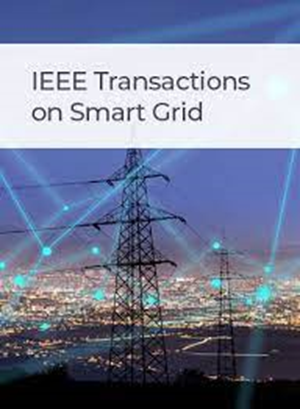温控负荷调度的“智能先模型后控制”策略
IF 8.6
1区 工程技术
Q1 ENGINEERING, ELECTRICAL & ELECTRONIC
引用次数: 0
摘要
模型预测控制(MPC)在室内温度控制和建筑能源管理中得到了广泛应用。传统的MPC有两个步骤:1)将热动力学建模为状态空间函数,以表示受恒温控制负荷影响的温度变化;2)在控制范围内,提出了tcl最优调度的优化问题。然而,由于建模误差和控制成本不一致,这种“先建模后控制”的策略可能会导致有偏差的控制,也就是说,最小化模型误差不一定会导致建筑物实际热动力学的最小成本。为了解决这个问题,我们提倡将热动力学建模纳入温度控制任务的“智能模型-然后控制”(SMC)策略。特别是,我们采用控制目标作为任务特定的损失函数来指导模型训练,而不是使用均方误差(MSE)。我们进一步建立了一个基于输入凸神经网络(ICNN)的代理损失函数,它是可微的和凸的,可以有效地训练。通过这种方式,MPC中模型训练和温度控制的目标都很好地一致,以获得具有成本效益的决策。我们在单区域和多区域建筑中验证了SMC策略的性能。仿真结果表明,与传统MPC相比,控制成本分别降低5.97%和2.10%。本文章由计算机程序翻译,如有差异,请以英文原文为准。
A “Smart Model-Then-Control” Strategy for the Scheduling of Thermostatically Controlled Loads
Model predictive control (MPC) has been widely adopted for indoor temperature control and building energy management. There are two steps in traditional MPC: 1) modeling thermal dynamics as the state space function to represent the temperature variation influenced by thermostatically controlled loads (TCLs); 2) formulating an optimization problem for optimal scheduling of TCLs within the control horizon. However, such a “model-then-control” strategy could result in biased control because of the unaligned modeling error and control cost, i.e., minimization of model errors may not necessarily lead to minimal costs against actual thermal dynamics in buildings. To tackle this problem, we advocate for a “smart model-then-control” (SMC) strategy that incorporates thermal dynamics modeling into the temperature control task. In particular, instead of using mean squared errors (MSE), we adopt the control objective as the task-specific loss function to guide the model training. We further formulate an Input Convex Neural Network (ICNN)-based surrogate loss function, which is differentiable and convex for effective training. In this way, the objectives of both model training and temperature control in MPC are well-aligned to obtain cost-effective decisions. We validate the performance of the SMC strategy in single-zone and multi-zone buildings. The simulation results show that it can reduce control costs by 5.97% and 2.10% respectively when compared with traditional MPC.
求助全文
通过发布文献求助,成功后即可免费获取论文全文。
去求助
来源期刊

IEEE Transactions on Smart Grid
ENGINEERING, ELECTRICAL & ELECTRONIC-
CiteScore
22.10
自引率
9.40%
发文量
526
审稿时长
6 months
期刊介绍:
The IEEE Transactions on Smart Grid is a multidisciplinary journal that focuses on research and development in the field of smart grid technology. It covers various aspects of the smart grid, including energy networks, prosumers (consumers who also produce energy), electric transportation, distributed energy resources, and communications. The journal also addresses the integration of microgrids and active distribution networks with transmission systems. It publishes original research on smart grid theories and principles, including technologies and systems for demand response, Advance Metering Infrastructure, cyber-physical systems, multi-energy systems, transactive energy, data analytics, and electric vehicle integration. Additionally, the journal considers surveys of existing work on the smart grid that propose new perspectives on the history and future of intelligent and active grids.
 求助内容:
求助内容: 应助结果提醒方式:
应助结果提醒方式:


